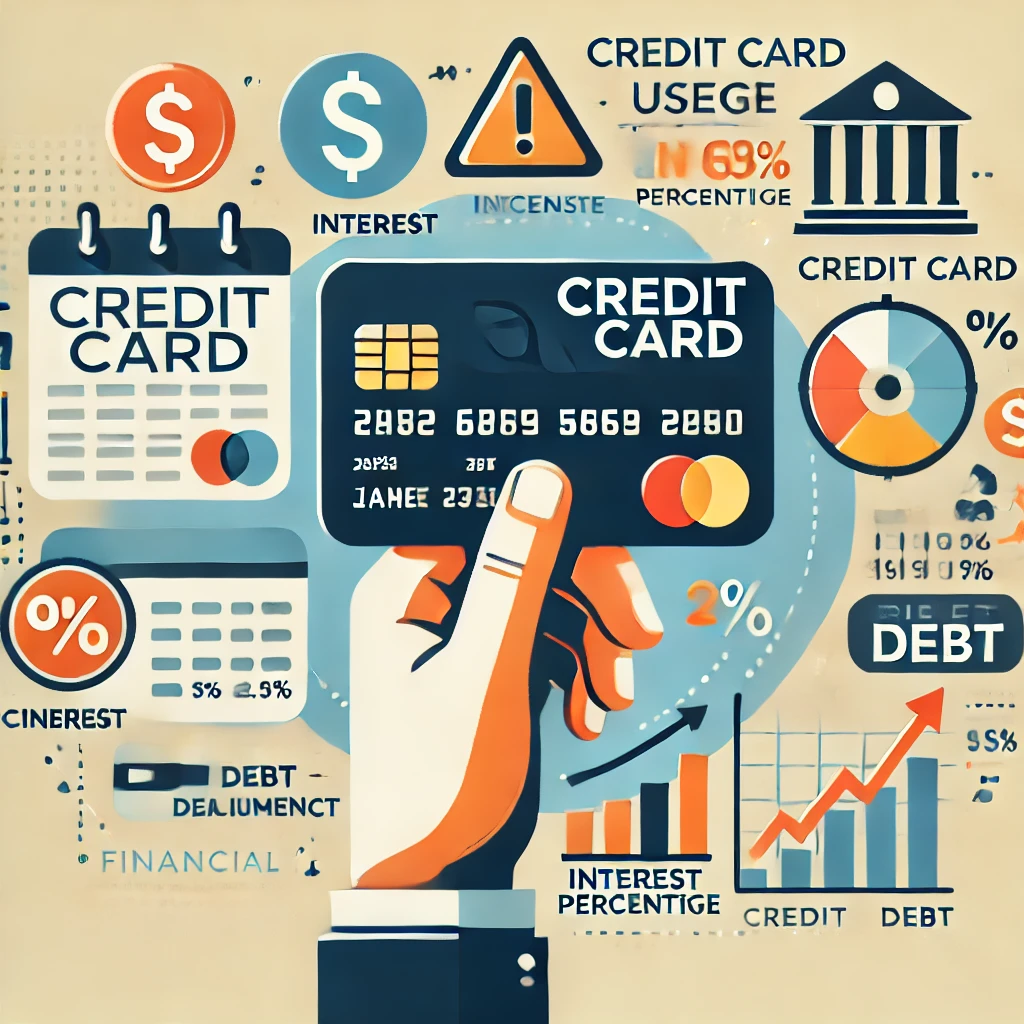Introduction
The recent surge in consumer spending as the holiday season approaches has led to a noticeable increase in credit card delinquencies. With heightened expenditure, more individuals are struggling to keep up with payments, signaling financial strain that could impact broader economic stability. This article explores the factors behind the increase in credit card debt, the potential consequences for consumers and financial institutions, and tips on managing credit during high-spending seasons.
Rising Delinquencies In A High-Spending Economy
As consumer spending increases in the lead-up to the holiday season, so too has the amount of credit card debt. PYMNTS.com recently reported an uptick in credit card delinquencies, with more consumers falling behind on payments as their debt levels rise. These delinquencies, which occur when cardholders are unable to meet their monthly payments on time, indicate potential strain in household finances. Economic factors, such as inflation and rising interest rates, have also played a role in increasing the financial burden on consumers.
The Consumer Financial Protection Bureau (CFPB) noted that credit card debt has been climbing steadily throughout 2024. Combined with the rising cost of goods and services, many households are now allocating a larger portion of their income to meet basic needs, reducing their ability to pay off credit card balances.
Why Are Credit Card Delinquencies Rising?
Several factors are contributing to the increase in credit card delinquencies:
Inflation and Higher Living Costs: Inflation has driven up the prices of everyday items, leaving households with less disposable income. Consequently, more consumers are relying on credit cards for essential purchases.
Interest Rate Hikes: Central banks, including the Federal Reserve, have raised interest rates to combat inflation. Higher interest rates make borrowing more expensive, and this is reflected in the interest rates on revolving credit, such as credit cards. For those carrying a balance from month to month, these increased rates mean higher payments, which can quickly lead to delinquency if the cardholder cannot afford the additional cost.
Increased Consumer Spending: The lead-up to the holiday season often results in increased consumer spending. However, this year, the surge is amplified as people return to pre-pandemic spending patterns. Many consumers have turned to credit cards to fund their purchases, leading to higher balances and, in some cases, repayment challenges.
Stagnant Wage Growth: While costs have increased, wages have not kept pace with inflation, causing a squeeze on household budgets. As a result, individuals are facing a shortfall, leading them to prioritize other financial obligations over credit card payments.
Impact Of Rising Delinquencies On Consumers And The Economy
The rise in credit card delinquencies has potential consequences not only for individual households but also for the wider economy.
Credit Score Impact
Delinquencies negatively affect credit scores, making it more challenging for individuals to obtain credit in the future. A lower credit score can limit access to financial products, like loans and mortgages, which in turn restricts financial mobility.
Increased Financial Pressure on Households
As debt accrues, households may experience increased financial pressure, which could lead to further reliance on credit to cover essentials, creating a cycle of dependency and financial instability. In severe cases, consumers may need to explore debt relief options or credit counseling.
Economic Ripple Effects
Widespread delinquencies can strain financial institutions, as they must allocate resources to manage these accounts. This, in turn, can lead to tighter lending criteria, making credit less accessible for all consumers, including those with strong financial histories.
Potential for Increased Regulatory Attention
The rise in credit card delinquencies has caught the attention of regulatory bodies, such as the CFPB. Increased delinquencies could prompt stricter oversight of lending practices to protect consumers from excessive debt accumulation. Financial institutions may face additional regulations that limit their ability to raise credit limits or approve new accounts for high-risk consumers.
Managing Credit During High-Spending Seasons
As the holiday season brings an increase in spending, it’s crucial for consumers to take proactive steps in managing their credit to avoid falling into delinquency. Here are some tips:
Set a Budget for Holiday Shopping
To avoid overspending, establish a budget for holiday expenses and stick to it. Consider setting aside a portion of income each month leading up to the season or limiting gift purchases to an affordable level.
Prioritize Debt Repayment
For those already carrying credit card debt, prioritizing repayment is essential. Paying more than the minimum amount due can reduce the balance faster, saving on interest and preventing debt from becoming unmanageable.
Monitor Interest Rates and Fees
Many credit cards come with promotional interest rates, such as 0% APR offers, that last for a limited time. Cardholders should be aware of when these promotions end, as any remaining balance will be subject to higher interest rates afterward.
Consider Debt Consolidation Options
Consumers facing high-interest debt may want to explore debt consolidation options, such as balance transfer cards or personal loans, which can offer lower interest rates and make repayment more manageable.
Use Cash or Debit for Non-Essential Purchases
Limiting credit card usage to necessary expenses can help prevent overspending. When possible, use cash or a debit card for discretionary purchases, allowing for greater control over spending.
Conclusion
The rise in credit card delinquencies highlights the importance of careful financial planning, particularly during high-spending seasons like the holidays. Inflation, interest rate hikes, and a surge in consumer spending are all contributing factors to the current trend. By taking proactive steps, such as budgeting and prioritizing debt repayment, consumers can minimize the risk of falling behind on payments and avoid the long-term financial consequences associated with delinquency.
Financial institutions and regulatory bodies are closely monitoring the situation, and there may be future developments aimed at supporting consumer financial health. In the meantime, individual financial responsibility remains critical. Understanding the risks associated with credit and taking steps to manage debt can help consumers maintain financial stability and prepare for the challenges of an evolving economic landscape.


